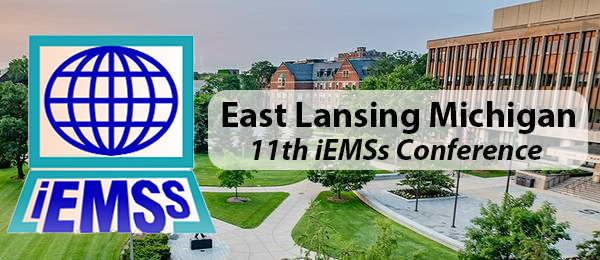Keywords
Modeling; narrative; decision-making; socie
Start Date
6-7-2022 7:00 AM
End Date
6-7-2022 7:30 AM
Abstract
We are confronted by a number of environmental challenges (perhaps crises) that require societal action. These include climate change, plastics in the environment, and environmental justice as well as many others. All of these require building a shared vision of the future and our actions. However, building a societal vision is a messy process requiring some form of shared narrative between various stakeholders who have different and often conflicting interests with limited, incomplete, and uncertain information. These interests are defined by each stakeholder’s current narrative, constructed by people asking themselves ‘what is going on here?,’ and answered by drawing on their personal experience and expertise. It is these personal narratives that need to be bound together in a coherent shared vision of the future. Within this process, the primary tool used to understand the linkage between our actions and future outcomes is modeling as developed, used, and explained by experts. However, the linkage between models, expert interpretation, and narrative is not well understood. In addition, full participation in the process of building a shared narrative requires the ability to understand, test, and question the critical data that shape and change the narrative. However, in most cases the modeling process is not open, transparent, or participatory, and as a result, its effectiveness as a tool for building a shared understanding of the action required is limited. This paper outlines the need for research to examine the coupling between the process of building a shared societal narrative and developing the models that support this narrative; calls for the development of methods and technologies that support open, transparent, and participatory modeling as a critical part of building a common societal vision; and suggests a common path forward.
Linking models with actions: the need for transparency in the public modeling process
We are confronted by a number of environmental challenges (perhaps crises) that require societal action. These include climate change, plastics in the environment, and environmental justice as well as many others. All of these require building a shared vision of the future and our actions. However, building a societal vision is a messy process requiring some form of shared narrative between various stakeholders who have different and often conflicting interests with limited, incomplete, and uncertain information. These interests are defined by each stakeholder’s current narrative, constructed by people asking themselves ‘what is going on here?,’ and answered by drawing on their personal experience and expertise. It is these personal narratives that need to be bound together in a coherent shared vision of the future. Within this process, the primary tool used to understand the linkage between our actions and future outcomes is modeling as developed, used, and explained by experts. However, the linkage between models, expert interpretation, and narrative is not well understood. In addition, full participation in the process of building a shared narrative requires the ability to understand, test, and question the critical data that shape and change the narrative. However, in most cases the modeling process is not open, transparent, or participatory, and as a result, its effectiveness as a tool for building a shared understanding of the action required is limited. This paper outlines the need for research to examine the coupling between the process of building a shared societal narrative and developing the models that support this narrative; calls for the development of methods and technologies that support open, transparent, and participatory modeling as a critical part of building a common societal vision; and suggests a common path forward.



Stream and Session
false